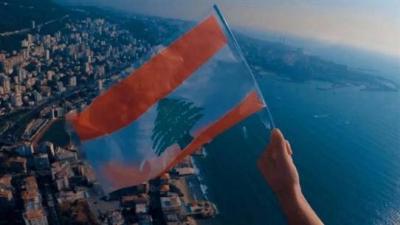We may not need much effort to foresee what the presidential vacuum will lead to. From one parliamentary session to another, the Parliament proves that it is not yet ready to fulfill its role in electing a new president for the republic. Both the deputies and the candidates are waiting for a signal from abroad. This tradition has become established in Lebanon: a political crisis and stagnation with a code word. Over the decades, Lebanon has demonstrated its inability to elect its president except in specific cases. Starting from the era of President Elias Sarkis, former minister Karim Pakradouni directly tested the presidents during their terms, before and after, and noted several rules linked to presidential elections, which he summarizes as follows:
- Each time there is an internal agreement on the president, the role of foreign interference diminishes but does not disappear. Usually, foreign involvement does not disrupt the internal agreement.
- When there is an internal disagreement that is difficult to resolve within the specified time frames, foreign intervention occurs openly, and not just through diplomacy. An example is when Lebanon experienced turmoil in 1958, leading to a split in the country and making a meeting of leaders impossible just before the presidential elections; Egyptian President Gamal Abdel Nasser and the United States agreed on electing Fouad Chehab. Chehab was not a candidate and his name was not previously proposed, yet he was known as a military leader who could keep the military establishment away from sectarian divides. Thus, his election came about through purely external factors, but he proved successful as president given the achievements he made.
- In cases where a solution does not come from external or internal agreements, leading to open political crises, multiple parties get involved in crafting a president. A glaring example of this is the "Taif Agreement." We reached the end of President Amin Gemayel's term, and the pact among the three Christian candidates for the presidency (Samir Geagea, Michel Aoun, and Gemayel, who had his candidate) was extremely difficult, hence the solution came with holding the "Taif Conference."
- In a rare scenario, political forces agree to hold an election session without previously agreeing on a candidate. During Suleiman Frangieh's election, the deputies agreed to leave the matter to the deputies to vote according to their beliefs. His election rested on a vote cast at the last moment by one of the deputies after receiving a call from Abdel Nasser, changing his choice from Sarkis to Frangieh, which made a difference in the outcome.
Foreign intervention means addressing the presidency in Lebanon as primarily the responsibility of the Maronites and Christians. When we reach a situation where Maronite candidates differ and coming together becomes impossible, the idea of an agreement under foreign sponsorship matures. Pakradouni recounts: "As Gemayel's term was nearing its end, he sought a solution in Syria, but Michel Aoun and Samir Geagea turned against him. Breaks in meetings with Syrian President Hafez al-Assad and his guests were prohibited unless an emergency concerning the guest occurred. A member of Assad’s entourage entered the meeting and handed him a small note; upon opening it, he addressed his guest saying: 'These people are meeting and planning a coup against you; all discussion has become irrelevant, go see what you want to do.' Gemayel understood that it was a political game, returned, but could do little."
Today resembles yesterday, as the former minister and architect of presidencies believes that Lebanon is closer to Amin Gemayel's situation and resembles the period before the election of President Michel Suleiman. "There are three presidential candidates now; Gebran Bassil threatens to run, Samir Geagea has announced support for a candidate but I believe he is inclined to run, and Suleiman Frangieh, who seems to be taking the most visible actions, though has not announced his candidacy yet, is awaiting Hezbollah's decision. If these candidates remain stably divided with no recognition of each other, we will face a political crisis that will only end with a conference similar to Doha or a new Taif."
Are the concerned countries regarding Lebanon, which are in the midst of severe crises, prepared to host such a conference? According to Pakradouni, "the issue requires an ambassador. It's easy for countries to intervene, unless they intervene militarily. Then we get into strategic decisions. When the Americans decided to intervene in Lebanon in 1958, it was a strategic decision that Abdel Nasser quickly accepted, resulting in an agreement on electing Fouad Chehab. Furthermore, when the Syrian army entered in 1976, it was a strategic decision in light of the Riyadh summit."
Close friends of the presidents agree that the times when the presidency was a point of Lebanese craftsmanship are few: "It’s possible that the election of Camille Chamoun was the closest to Lebanese craftsmanship. He was elected thanks to his agreement with Kamal Jumblatt, Saeb Salam, and Abdel Hamid Karami."
In certain instances where the outgoing president’s term is successful, his influence on the successor is noticeable. "An example is Fouad Chehab endorsing Charles Helou for election without him being a candidate. He was a political writer in L'Orient; Chehab summoned him ten days before the end of his term and told him he was a presidential candidate and not to inform anyone." Pakradouni believes that "had Michel Aoun's term been successful in the Chehab sense, his decision could have favored the election of his successor. However, this does not negate his role as he remains president and has political weight, but circumstances prevented him from achieving accomplishments that made his term closer to Chehab's. He could have decided to nominate Gebran and secure his success. Gebran has chances because the current political movement exists. Contrary to belief, his term did not fail but rather the circumstances he faced were difficult."
At present, there are two factions that tilt the balance toward the new president in Lebanon: "Hezbollah, which must find a solution between its candidates, and Hassan Nasrallah, who is skilled in these matters, and the Kingdom of Saudi Arabia through its ambassador in Lebanon, who may lean toward nominating Samir Geagea without it meaning they have made that decision, but they might play the game of his nomination."
Since independence, for decades, the interests of countries have coincided to intervene in Lebanon: "A triangle of international and Arab intervention in cooperation with parts of the Lebanese," says Pakradouni, adding: "Intervention is always a matter of intersecting interests between a foreign country that collaborates with an Arab state in agreement with the Lebanese candidate and his team."
Based on the analysis of the current situation, Pakradouni concludes: "If the president is elected from today until two months, it means we have not exceeded the reasonable limits; if we fail, we will face a problem and will need a 'Doha' or 'Taif' agreement, meaning a configuration involving Iran, Saudi Arabia, and a foreign country." He does not fail to warn that "the disagreement this time is not merely a political sectarian issue but rather our problem is a financial one. If we fail to elect a president, we will face two issues: the term of the Central Bank Governor will end, which will inevitably impact the lira, and subsequently, the term of the army commander will end, putting our security at risk; hence, we need a president lest the situation spirals out of everyone's control and becomes unmanageable."




